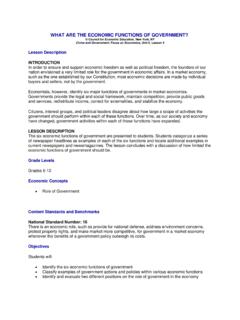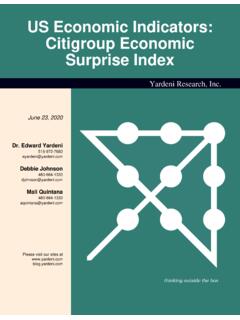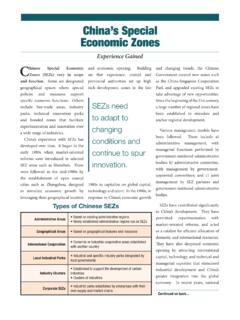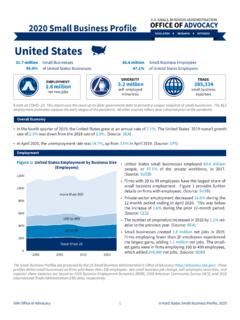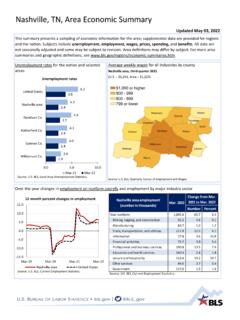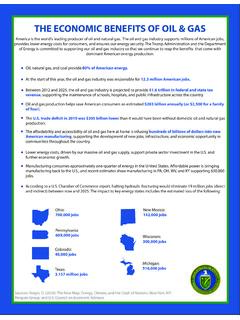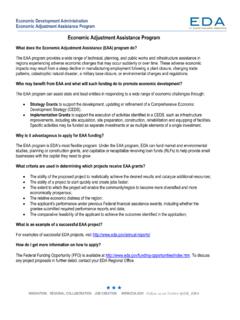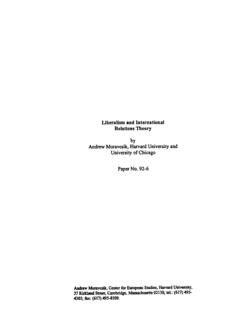Transcription of The Social and Economic Impacts of Gold Mining
1 The Social and Economic Impacts of gold miningThe Social and Economic Impacts of gold miningThe Social and Economic Impacts of gold Mining . A research study by Maxwell Stamp commissioned by the World gold the World gold CouncilThe World gold Council is the market development organisation for the gold industry. Working within the investment, jewellery and technology sectors, as well as engaging with governments and central banks, our purpose is to provide industry leadership, whilst stimulating and sustaining demand for gold . We develop gold -backed solutions, services and markets based on true market insight. As a result we create structural shifts in demand for gold across key market sectors. We provide insights into international gold markets, helping people to better understand the wealth preservation qualities of gold and its role in meeting the Social and environmental needs of society.
2 Based in the UK, with operations in India, the Far East, and the US, the World gold Council is an association whose members comprise the world s leading gold Mining Maxwell Stamp Maxwell Stamp is one of the world s leading international economics consultancies. Established in 1959, they have over 50 years of experience in over 165 countries and territories, with a strong track record in developing and transitional countries and expertise across a wide range of competencies and policy areas: from international trade to rural livelihoods, from privatisation to financial reform, from gender to industrial strategy. Through the services delivered for clients, Maxwell Stamp is committed to working towards the eradication of poverty and increased Social research study was undertaken for the World gold Council by Maxwell Stamp PLC. The lead author was Andrew Britton, working closely with Ross Lakhdari.
3 Additional contributions were provided by Jack Harvey and Simon the World gold Council, the project was led by John more informationPlease contact summary 01 Introduction 05 Report structure 06 Scope and approach 06 Section 1: Supporting global Economic growth 07 Section 2: Supporting host nations 11 Industry contributions to national economies 11 Supporting better governance 15 Section 3: Investing in people 19 Job creation 19 Employment income 21 Local employment 23 Gender equality 24 Building human capital 26 Section 4: Supporting communities 27 Distribution of community investments 28 Focus on healthcare 30 Conclusions 32 Improving socio- Economic development reporting 32 Appendix: Study methodology 33 A1.
4 Gross value added 33 A2. Indirect gross value added 34 A3. Employment 35 References 36 Cover image courtesy of AngloGold Ashanti and This is the industry s scale, the socio- Economic Impacts of the gold Mining industry are not well Mining companies are a major source of income and Economic growth, with an important role in supporting sustainable socio- Economic development. During 2013, gold Mining companies contributed over US$ to the global economy through their production activities and expenditure on goods and services. This is more than the combined gross domestic product of Ecuador, Ghana and Tanzania, or close to half of the gross domestic product of countries such as South Africa or Denmark. Executive summaryWhilst the potential for negative Social and environmental Impacts from gold Mining activities is well known, the nature and distribution of the socio- Economic Impacts of gold Mining at an industry level on host nations and communities is relatively poorly understood.
5 Focusing on the Impacts of large-scale commercial gold Mining ,i this report builds on previous studies commissioned by the World gold Council to provide an understanding of the socio- Economic Impacts of the gold Mining industry at a global, national and host community level. In doing so, this report seeks to facilitate more effective dialogue between companies, governments, citizens and civil society and contribute towards the development of policies and engagement activities that deliver shared value for all value created by the gold Mining industry is becoming increasingly important for the socio- Economic development of nations and communitiesResponsibly undertaken, gold Mining has the potential to make a significant, positive impact on the economies of the countries in which gold Mining takes place and on the lives of the citizens of those countries. Amongst the top 30 gold i It is recognised that in several gold producing countries the socio- Economic Impacts of artisanal and small-scale gold Mining are significant, particularly for local communities.
6 However the need for data transparency and consistency has dictated that this report focuses solely on larger-scale, corporate gold Mining activities, primarily undertaken by listed companies. These gold Mining activities represent the majority of gold extraction countries, over 60% are low or lower-middle income countries with substantial socio- Economic development needs. In eight of the top 30 gold producing countries, the production and procurement activities of gold Mining companies generate over 10% of each country s gross domestic product. For two of these countries, this figure rises to over 25% of gross domestic of the countries that are significant gold producers are also impoverished countries that are long term recipients of development assistance (aid) from foreign government donors. Given that reliance on foreign aid is an inherently vulnerable position for any impoverished country, it is notable that the Economic value directly and indirectly created by the gold Mining industry globally has exceeded the global total value of development assistance every year since 2010.
7 01 The Social and Economic Impacts of gold mining70% of total expenditures by gold Mining companies are on payments to suppliers, contractors and of the objectives of transparency initiatives such as the EITI is to reduce corruption risk, a significant factor in the misuse of revenues from extractive industries. In gold producing countries, this appears to be working. Perhaps more importantly, given cuts to aid budgets in many donor countries, the longer term trend for the Economic value created by the gold Mining industry is that of significant growth. The direct Economic contribution of the gold Mining industry to the global economy, as defined by gross value added (GVA), has increased almost seven-fold in the period from 2000 to 2013. The world regions that have benefited most from the growth in the value created by gold Mining are Asia and Africa, which account for the largest shares of gold Mining GVA.
8 Amongst several of the lower income gold producing countries, such as Ghana and Mali, growth of the gold Mining industry means that gold Mining companies now create substantially more value in the economy than is received from development assistance programmes. For Ghana and Mali this was not the case as recently as 2008. The economies of gold producing countries gain far more value from the productive activities of gold Mining companies than they do from royalties on land useNaturally, governments of gold producing countries want to maximise the value that they receive from the Mining companies that develop their resources. Much of the literature on this topic suggests that royalty rates on mineral extraction are the principal Economic benefit for governments. However, an analysis of gold Mining company expenditures reveals that far more value is distributed to host governments and the wider economy through other means.
9 By far the most significant means by which value flows from gold Mining companies to the economies of host countries is through payments to suppliers and contractors and wages for employees. Together these two areas, usually taxed by governments, account for 70% of total expenditures by gold Mining companies. In terms of direct taxation, almost 60% of the payments that gold Mining companies make to host governments are for income and corporate taxes. Royalty rates, by contrast, account for around 15% on average of direct taxation. Other taxes that can be almost as significant as royalty payments include import or fuel duties for some Mining companies fuel costs may account for up to 40% of total operating expenses, so such duties can be significant. Societal benefit from the revenues created by gold Mining depends upon responsible host governments and there is evidence that revenue management in gold -producing developing countries is improvingArguably the most well documented challenge facing resource-rich developing countries is the management of revenues from the extractive industries.
10 Governments, especially in poorer countries, are not always open about the revenues they receive from extractive industries which has an impact on the ability of their citizens to hold them to account. A key initiative designed to help improve the accountability of governments is the Extractive Industries Transparency Initiative (EITI), which provides a mechanism for host governments to publicly disclose the revenues raised and received from extractives companies. The gold Mining industry is an active supporter of the EITI as are many gold producing countries: 70% of the developing countries within the top 30 gold producing countries have implemented the EITI and over 20 international gold Mining companies support the administration of the initiative. One of the objectives of transparency initiatives such as the EITI is to reduce corruption risk, a significant factor in the misuse of revenues from extractive industries.



